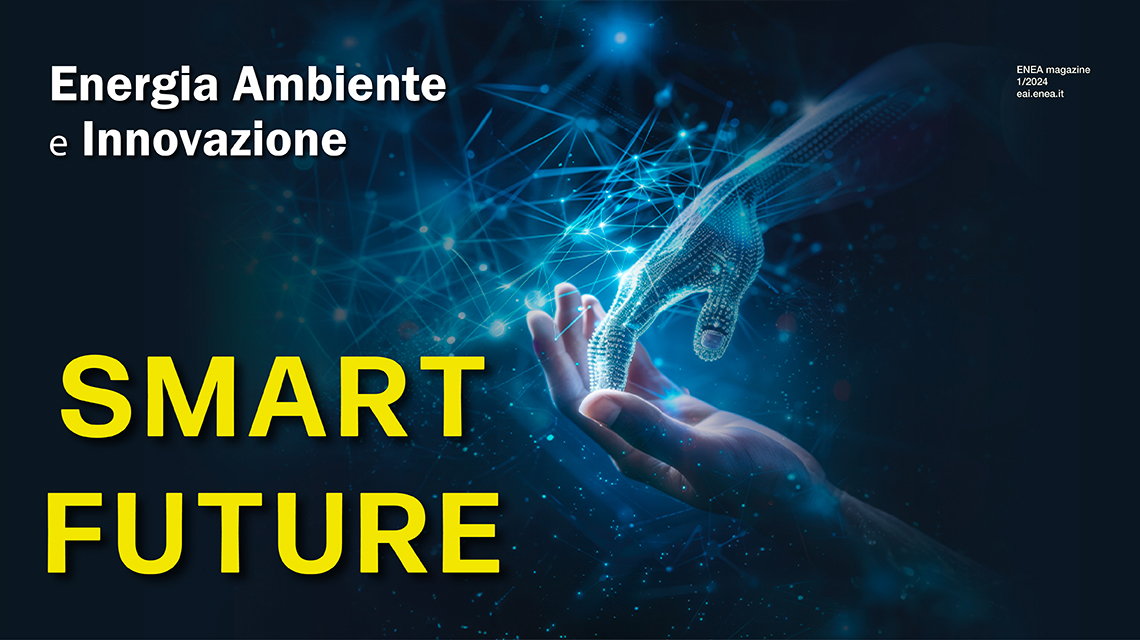Italian National Agency for New Technologies, Energy and Sustainable Economic Development

Energy: Dialuce (ENEA), decarbonisation requires the energy system to become smarter
The president's speech in the latest issue of the ENEA magazine "EAI"
“The path towards decarbonisation requires an integrated, coordinated and transversal approach, which has as its common thread the need for the energy system -understood as a set of critical and non-critical networks and infrastructures, production, transport, distribution, storage and end use systems- to become smarter”. ENEA president Gilberto Dialuce said in an article in the latest issue of ENEA magazine "Energy, Environment and Innovation" entitled ''Smart Future''. Dialuce pointed out how ENEA is engaged in projects and initiatives for decarbonisation, an objective that "cannot ignore research, development and innovation activities which also favor study, training and requalification paths for the creation of professional roles required by the market. Further commitments are necessary to encourage cultural awareness and social acceptability of new technologies, encouraging end users to change their habits and take an active and proactive role".
Among the key priorities to achieve the decarbonisation targets: increase renewable sources energy production by developing advanced technologies and new forms of energy management, sharing and use such as Renewable Energy Communities (CER); sustainable mobility and new digital technologies; development of smart grids and use of enabling technologies such as the Internet of Things (IoT), blockchain, AI, machine learning, big data, robotics, sensors and smart metering. All this, pointed out Giulia Monteleone, head of the ENEA Department of Energy Technologies and Renewable Sources, taking into account that in the transition towards an energy model based on the use of renewable sources, "an essential role will be played by the proactive participation of citizens and communities, whose future is based on a systemic and profound transformation of their cultural model.
These topics are thoroughly discussed in the magazine: the section Scenarios hosts the interventions of Domenico Cimmino and Alessandro Burgio, Technological Development of Eni Plenitude Energy, Fabio Crescimbini, vice-rector of the University of Roma Tre, Anna Donati, president and CEO of " Roma Servizi per la Mobilità”, Venizelos Efthymiou, chairman of FOSS Research Centre, University of Cyprus, Gaetano Fusco, national coordinator of the “Urban Mobility” Spoke of the National Center for Sustainable Mobility (MOST), Chiara Marricchi, head of ENEL Long Term Energy Scenarios and Positioning, Valentino Sevino, general director of the Mobility, Environment and Territory Agency of Milan, Margherita Menon, Operations and Communication manager of EERA JP Smart Grids (European Energy Research Alliance), Luciano Martini, director of the Transmission and Distribution Technologies department of RSE and EERA Coordinator JP Smart Grids and Mattia Cabiati, Support for international activities and European projects of RSE.
The section Interviews features representatives of the sector like Alessia Cappello, councilor for Economic Development and Labor Policies of the Municipality of Milan with responsibility for smart cities, Marco Cantamessa, president of the CVA Group and member of the Executive Board of Utilitalia, Norela Constantinescu, section manager Innovation ENTSO-E, the European network of electricity transmission system operators, Valeria Nicotra, general secretary of ANCI and Gian Piero Celata, president of the National Energy Cluster. The section Focus, coordinated by ENEA researchers, hosts interventions on crucial topics of "smartization": smart buildings, hydrogen, intelligent and sustainable mobility, electric cars. Smart grids, machine learning, smart cities and CER were also extensively covered.
